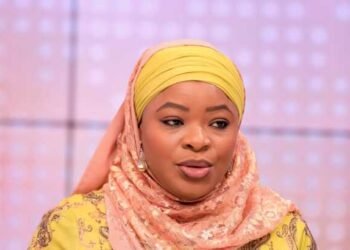The Institute of Economic Affairs (IEA) has stated that the Monetary Policy Committee (MPC) of the Bank of Ghana is currently laying between the devil and the deep blue sea.
According to the Economic and Policy Think Tank, the MPC is faced with pressure from President Akufo-Addo to cut the policy rate, the rate at which it lends to commercial banks, though there are other factors such as rising inflation that demands an increment in the policy rate.
However, the IEA advised the Committee in a statement prior to the conclusion of the 102nd MPC meetings currently underway, to maintain the policy rate.
“The MPC, in fact, is faced with a very challenging decision at this juncture, given these competing demands or interests. In the circumstance, our expectation is that the Committee will go for the safest option, that is STAY PUT! —implying that it will keep the PR [Policy Rate] unchanged at 13.5%”.
IEA
Yet, the IEA believes, keeping the policy rate at the current 13.5 percent only amounts to kicking the can down the road.
“Choosing this option, however, will not make the problem of high lending rates go away. The BoG will only be postponing the solution; the problem will continue to haunt us!”.
IEA
High cost of lending
Businesses in the country never cease to mention as one of their major challenges, the high cost of borrowing. Until this challenge is addressed, GUTA believes its members will remain uncompetitive in the face of the implementation of the AfCFTA.
At a recent forum, the IEA blamed the government, the Bank of Ghana and banks for the high cost of credit in the country. It also pointed out that it is not only lending rates and spreads that are prohibitively high, but also are other financial charges and fees. Some of these charges include those levied on loans, use of credit cards, use of ATMs and foreign exchange transactions.
According to the IEA, charges on financial services as well as other services and goods that are used on a large scale are regulated in other jurisdictions. These include services such as water, electricity, public transport and postal services.
This is because “leaving them to the dictates of the market could lead to exploitation of the large numbers of consumers by providers bent on making abnormal profits”. The IEA, therefore, urged the BoG to regulate prices of other financial services as well, in the country.
Capping interest rates
Meanwhile, there are calls from the public and some experts that the Bank of Ghana should cap the spread between the policy rate and the lending rate to regulate the cost of borrowing. But, the IEA reiterated that capping interest rates does not amount to regulating lending rates. According to the IEA, by doing this, “the Central Bank will only be exercising its regulatory mandate as most central banks do”.
The IEA therefore, urged the BoG to find a permanent solution to the high cost of borrowing in the country. The Institute noted that continuous postponement of this action should not be an option since it has severe repercussions on the economy.
“Regulating lending rates and prices of financial services is key as it will ease the burden on consumers of financial services, while also easing the cost of investment as a vehicle for catalyzing the growth of the economy. The BoG, indeed, has a national duty to attend to the incessant calls by governments, businesses and CSOs to address what is obviously one of the most important hindrances to the progress of the Ghanaian economy”.
IEA
READ ALSO: Takoradi Kidnap: Victim has a right for independent examination- Charles Bissue




















